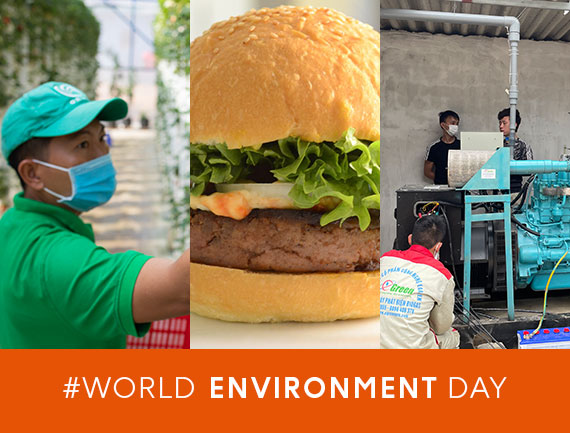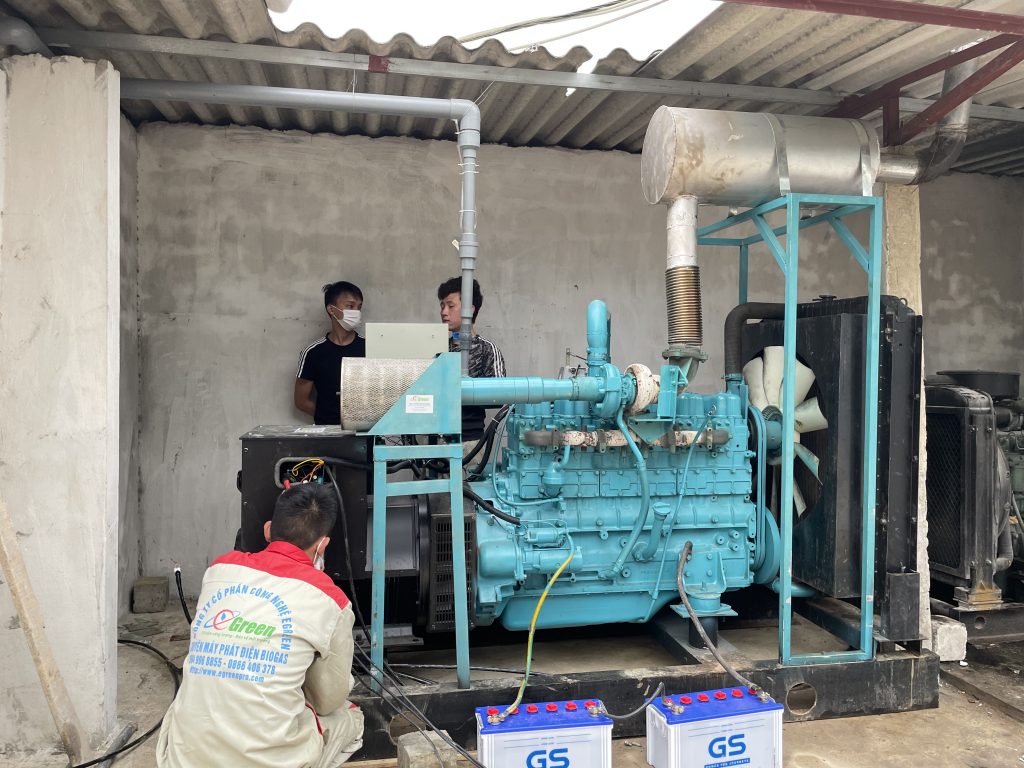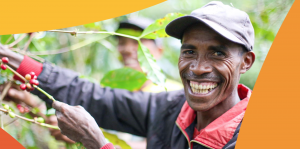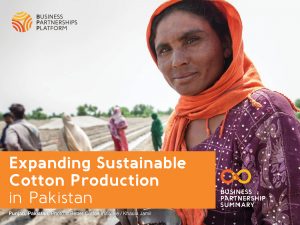Blog: Three partnerships championing big ideas and greener solutions in Vietnam

On World Environment Day, BPP is celebrating three partnerships in Vietnam that are championing big ideas and greener solutions to pressing environmental challenges.
Getting cricket on the menu!
Globally, the production of traditional proteins – such as beef – accounts for 23% of global water use, 15% of greenhouse gas production and 26% of land use. As the threat of climate change grows, the availability of land for agriculture is shrinking and water is becoming increasingly scarce, new forms of protein are offering less resource-intensive dietary options.
In Vietnam, a BPP Green Recovery Partnership between insects-for-food start-up, Cricket One, Entomo Ventures and the Australian Government is working to increase the acceptance of cricket meat as a protein alternative. Compared to beef production, farming edible crickets could use up to 15 times less feed, 10,000 times less land and 8000 times less water, produces 100 times less greenhouse gases, and takes 24 times less time.

As well as being less resource-intensive, crickets are climate resilient and a great source of protein, minerals, vitamins and dietary fibre. Cricket One is working to increase the efficiency of cricket farming, and to increase the meat’s popularity by enhancing its taste, texture, affordability and availability.
 Photo: Cricket One
Photo: Cricket OneThe partnership is achieving this through the development of a leading digital platform for cricket farming, that provides farmers with accurate information regarding farming conditions, daily task reminders, the quantity of crickets at a given farm, as well as improving cricket welfare by recognising and capturing any stresses the crickets are facing. This supports more effective farm management and a higher quality meat.
The partnership is also working to promote and increase cricket consumption through a dedicated marketing campaign and by enhancing the taste and texture to develop high quality products for retail and commercial, such as cricket burgers.
The partnership is already piquing the nation’s curiosity – Cricket One’s cricket-based meats are on the menu at a host of major food outlets across Vietnam.
Raising the bar for sustainable food production
In Vietnam’s Mekong Delta, a growing number of adverse climate change impacts – particularly sea-level rise, increasing salinity, flood, and drought – means the region is searching for innovative new solutions for growing fresh, healthy produce to feed its 21 million inhabitants.
A BPP Green Recovery Partnership between Australian climate-adaptive agri-tech company, Orlar, Raise Partners, SNV Netherland Development Organisation and the Australian Government offers one such solution. The partnership will bring new vertical farming technology to the Mekong Delta, delivering quality fresh produce while placing fewer demands on the region’s natural resources.

 Photo: Orlar/Ngô Quang Thịnh
Photo: Orlar/Ngô Quang ThịnhOrlar’s technology, which has already been commercially proven in Vietnam’s Central Highlands, uses 95% less water and energy than other intensive agriculture, and emits net zero greenhouse gases. Its patented vertical pods use 90% less land, freeing up scarce agricultural land – particularly land that has been damaged by years of destructive agricultural production – for rehabilitation and a return to native vegetation.
The vertical pod technology keeps a wide range of plants happy and healthy, to efficiently produce thriving leafy greens, herbs, fruits, and vegetables in a region not normally associated with these kinds of crops. Coupled with the technology’s net zero greenhouse gas emissions, its fresh produce, including lettuce, kale, strawberries, tomatoes, and herbs, is 100% free from chemical residues, harmful plastics and nutrient pollutants.
This means the partnership is delivering food that is better for the environment and better for people – safer, more sustainable, nutritious and affordable.
Transforming waste into green energy for commercial farms
In Vietnam, the highly polluting livestock sector, which accounts for 28% of all agriculture in the country, emits around 15 million tonnes of carbon dioxide into the atmosphere each year. It is expected that the industry will soon face regulations on discharge, emissions and bio-security, alongside increases in the cost of energy.

 Photo: E-GREEN.
Photo: E-GREEN.A BPP Green Recovery Partnership between Vietnamese eco-engineering company, E-GREEN, SNV Netherlands Development Organisation, Nexus for Development, HD Bank and the Australian Government is working to reduce livestock emissions and commercial energy costs by converting excess biogas into electricity.
More than 8,500 large and medium-sized pig farms across Vietnam currently have biogas digesters that transform manure into a usable cooking gas, yet often generate far more gas than is needed. The partnership is scaling up the delivery of state-of-the-art equipment to convert this excess biogas into electricity – preventing it from being released into the atmosphere as a greenhouse gas and providing an affordable source of renewable energy. The partnership will generate additional revenue by linking reduced emissions to global carbon markets.
The partnership to generate electricity from manure is a win-win for commercial farms – reducing energy costs by up to 30%, improving their environment, and preparing them for future environmental regulations that may impact their business.


